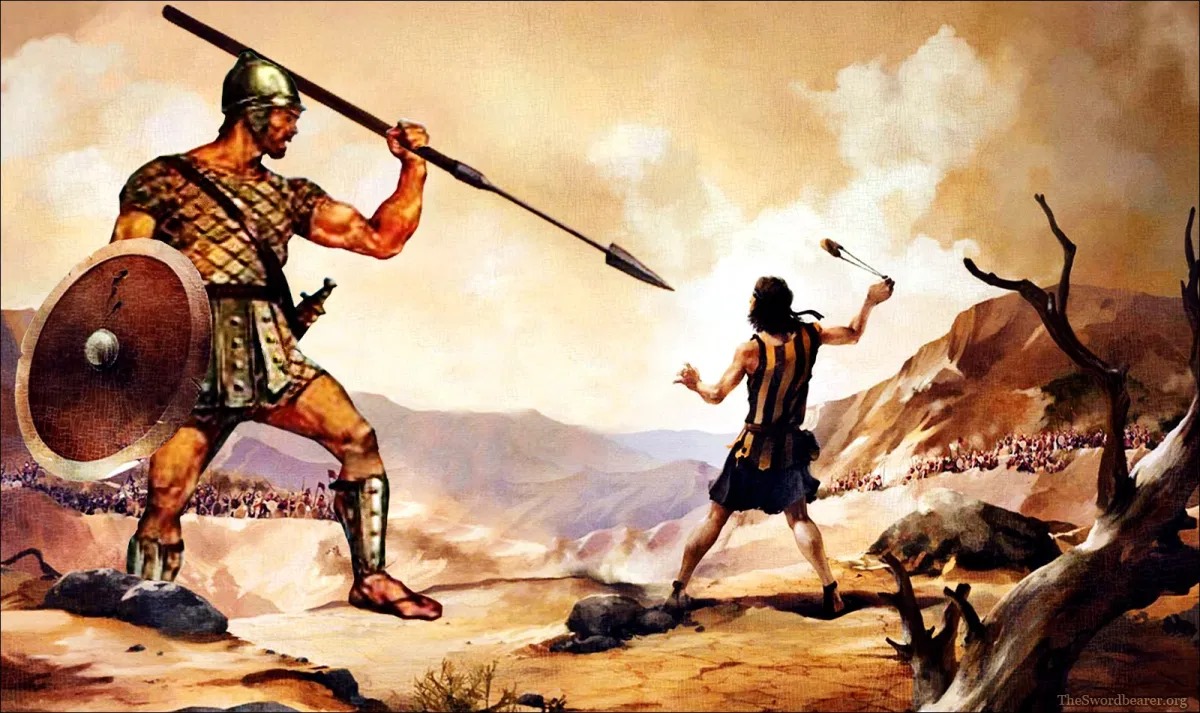RETURN OF THE KING
The King David within is the realization that our birthright is a palace, overflowing with wealth. Resurrecting this true identity marks the end of the decrepit-chic of former generations, when we were “crushed to shine.”
By Rabbi Boruch Merkur

The Thirteenth and final Pillar of faith is belief in the denouement of Jewish history, the ultimate reward for our life-journeys throughout the generations, the Resurrection of the Dead. This fantastical, otherworldly promise - when the likes of Moshe Rabbeinu and King David, as well as all Jews of the past, live again - is entirely miraculous and dependent on Divine intervention. What relevance then does it have to us?[1]
Not only that, but great tzaddikim will rise again at the onset of geula, the beginning of the Messianic Era.[2] In our extraordinary, unprecedented times of vacuous leadership, when the throne sits empty in open sight, the sudden appearance of these Biblical giants and epic personalities will be all the more shocking, their pre-eminence undeniable, wondrous and mystifying in this scientific age of reason. With such giants walking the earth, what could possibly be left for us to contribute?!
Also, the first stage of redemption is no more than the end of Jewish subjugation to foreign nations. Resurrection as an opening act seems entirely out of place, contradicting the natural, law-abiding first stage of redemption. How can normal life go on when gargantuan miracles walk before our eyes?!
*
One approach is to recognize that tzaddikim of the Torah are more than inspiring, historical personalities we emulate; they are archetypes of Jewish heroism for us to embody.[3]
The Rebbe often speaks about the Moshe within us. Here we are taught about the majestic archetype of Dovid HaMelech, the King David that exists within each of us:
Specifically in the dark obscurity of exile, “when your seat [the seat of Dovid] is noticed to be vacant,” a Jew (who has the aspect of Dovid within) is noted as being absent from his true seat at his Father’s table, in the Holy Land, in Yerushalayim the Holy City, in the Holy Temple. Specifically through this awareness he is “missed” - G-d devotes Himself entirely to “remembering” this Jew …redeeming him or her in the true and complete redemption through Moshiach Tzidkeinu.[4]
The King David within is the realization that our natural, rightful place, our birthright, is a holy, majestic place, overflowing with wealth. Resurrecting this true identity marks the end of the decrepit-chic of former generations, when we were “crushed to shine”:
Specifically in the darkness of exile, with all its limitations and constraints (a product of G’vura, the Divine attribute of Severity), is the power to bring geula, redemption …
This fact resonates with the teaching, “All those who fulfill the Torah in poverty, will ultimately fulfil it in affluence.”[5] Likewise, through our initiatives in the poverty of exile – “poor” pertains only to “daas-outlook” – comes the true wealth of daas, as well as monetary affluence, in the true and complete redemption.
How much more is this the case as we have certainly “fulfilled our obligations” in all measures and definitions of “poverty” (in previous generations). Now we have broad-based freedoms from the other nations of the world. We can study Torah and observe Mitzvos with tranquillity of spirit and body (resulting in the recent attainment of “wealth” in Torah, through the publication and dissemination of a plethora of holy books (a portion of) which remained inaccessible until now.)[6]
*
Note the contrast: When the Rebbe speaks of how Moshe as an infant was drawn from the Nile river, the idolatry of Egypt, by Pharaoh’s daughter Basya, and raised in the Egyptian palace, ultimately to crush it.[7] King David imparts to every Jew the next step in Jewish sovereignty, after we have already thrown off the shackles of the root of all exiles, Egypt, we trace our identity back to the ancient glory and apex of our people in the time of King David. When we embody Dovid HaMelech, we resurrect the power to shed the rags of this impoverished exile and assume our rightful place and throne in the world.
NOTES:
[1] Especially when success is dependent upon us, not the leader, the Rebbe, Moshe of the generation. The Rebbe, on 28 Nisan 5751, passed the responsibility on to us.
[2] The rest of the nation’s resurrection following forty years later.
[3] In line with what our Sages teach about Yaakov Avinu: “Yaakov Avinu did not die. Just as his descendants are alive, so is he alive.”
[4] Seifer HaSichos 5751 pg. 485-486
[5] Avos 4:9
[6] Seifer HaSichos 5751 pg. 486
[7] Ibid 406
 April 8, 2021
April 8, 2021
Reader Comments